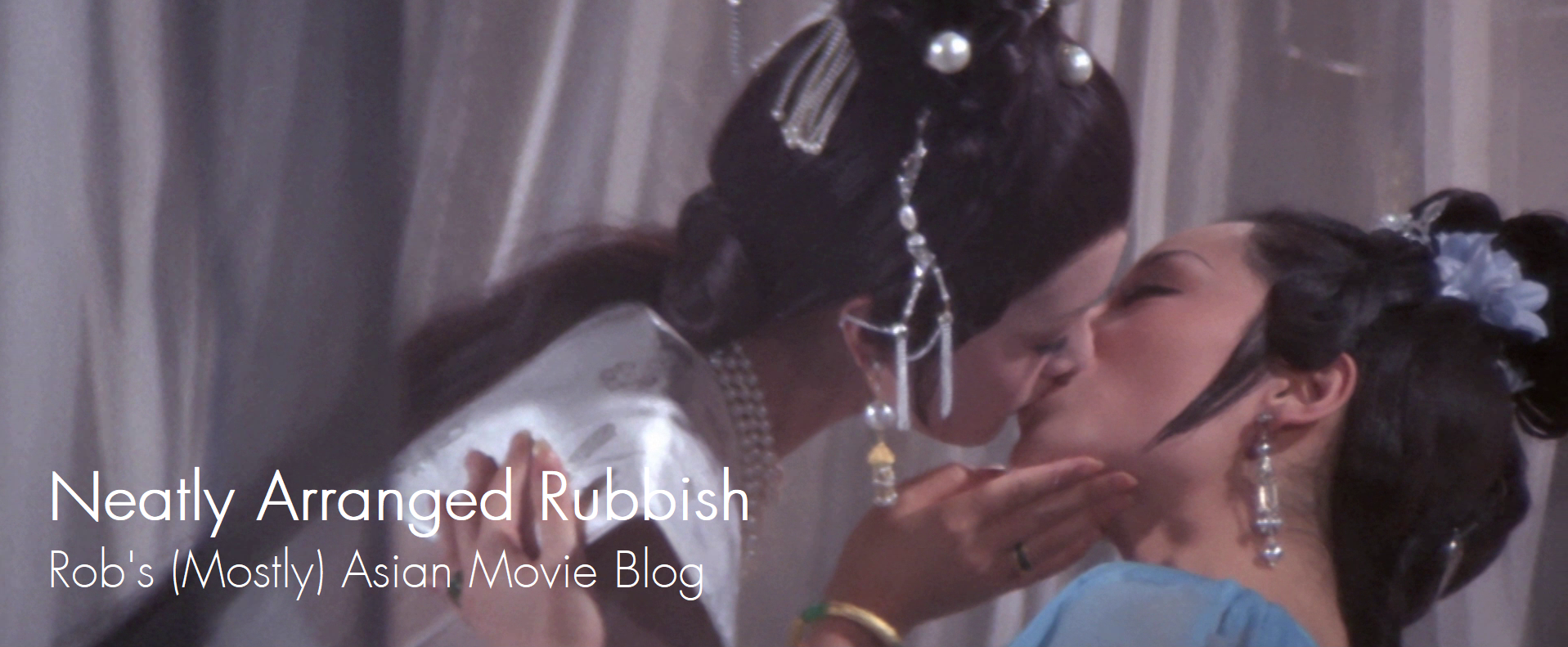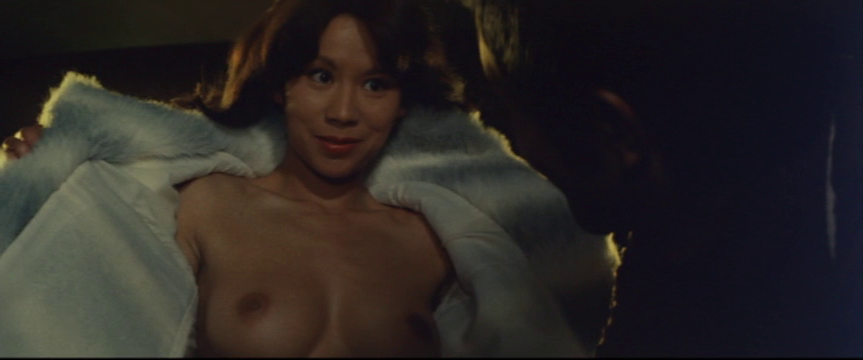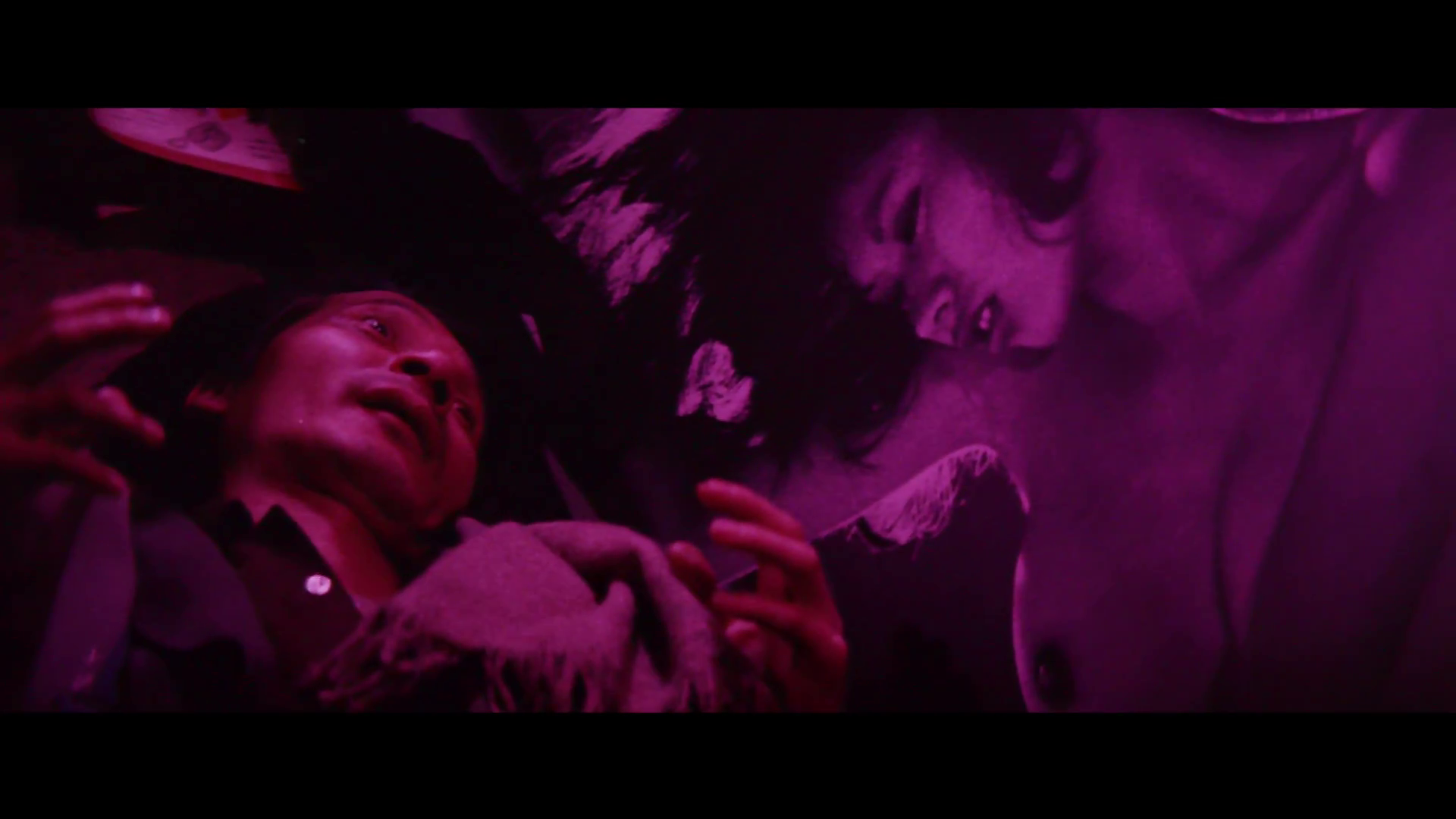Last Updated on September 29, 2020 by rob
Kyoto bank-robber Takashi (Tsunehiko Watase) loses his partner in a heist gone wrong and decides to leave the country for Brazil. But his plan is sidetracked by Michi (Miki Sugimoto) the delinquent woman who loves him and won’t leave him alone, as well as his dead partner’s vengeful brother who wants all the cash they stole for himself. Events are further complicated by a murderous gay sadist occupying the hotel room next door to where Takashi and Michi are hiding out, a violent motorcycle gang, an excitable TV news reporter and dozens of enraged citizens. Oh, and quite a few dead bodies too.
I’ve always thought of Italians as the hot blooded, excitable ones but if Violent Panic is anything to go by they can’t hold a candle to the Japs once they get going. This lightweight but very likeable crime yarn kicks off in tough Fukasaku gangster mode as fugitive Takashi falls in love with shoplifter/prostitute Michi while attempting to escape the law but then starts tossing in colourful and amusing digressions. There’s a hilarious subplot featuring a randy copper named Hatano who’s having problems with his promiscuous work colleague/girlfriend. When he calls round at her flat and busts in on her after peering through the letterbox and spotting another man in her bed it’s like a scene out of a Carry On movie. “But you always liked to sleep with me, right?” whines the hurt copper. “I do” replies the girl, “but… I like sleeping with him too”!
On the other hand the bank robbery hold-ups, a brief encounter with Takashi’s family before the cops try to seize him, the frenzied groping of Michi by a bar pervert and the subsequent murder of the latter (nice touch by the director here who has the perv’s body, hands grasping, posed under a huge photo blow up of a naked Michi) all feel like they could have come straight out of any of the director’s gangster movies. Yet Fukasaku juggles the wildly shifting tones here – not least a compellingly nasty subplot in which a young car mechanic ends up blackmailed into becoming the sex slave of a sadistic gay whose connection to Takashi and Michi packs a neat surprise when all is made clear – with assurance and that unpredictable quality is part of what gives the film its eccentric charm.
The other plus is that Watase and Sugimoto are charismatic performers and because they’re not playing crazed or cynical killers (Takashi never actually gets to murder anyone and Michi comes across as a sweet, lonely kid) they’re an easy pair of outcasts to root for. Takashi’s obvious concern for Michi, despite his best efforts to leave her behind are really rather touching. There’s an increasingly lighthearted and optimistic feel to proceedings that the tougher elements can’t entirely suppress. Indeed the film’s climax transforms what could have been a standard doomed last stand for our hero into a humongous car chase in which hero and heroine are pursued by police, bad guys and dozens of citizens enraged at the lawlessness erupting around them (the ‘Violent Panic’ of the film’s title).
Fukasaku shows that he can bring the same frenzied visual style to vehicular mayhem as he can to his Yakuza street brawls as the pursuit of Takashi and Michi becomes a huge demolition derby (complete with pseudo sociological commentary from a newscaster caught up in the melee) before escaping via speedboat and – as the end titles winningly inform us – a successful career robbing banks in Brazil together! This extended climax is quite something to see and despite the evidently low budget which really doesn’t stretch to much in the way of stunts the director never lets the energy of the pursuit sag or stall, it just keeps going in this kind of whirligig frenzy. Good stuff.



